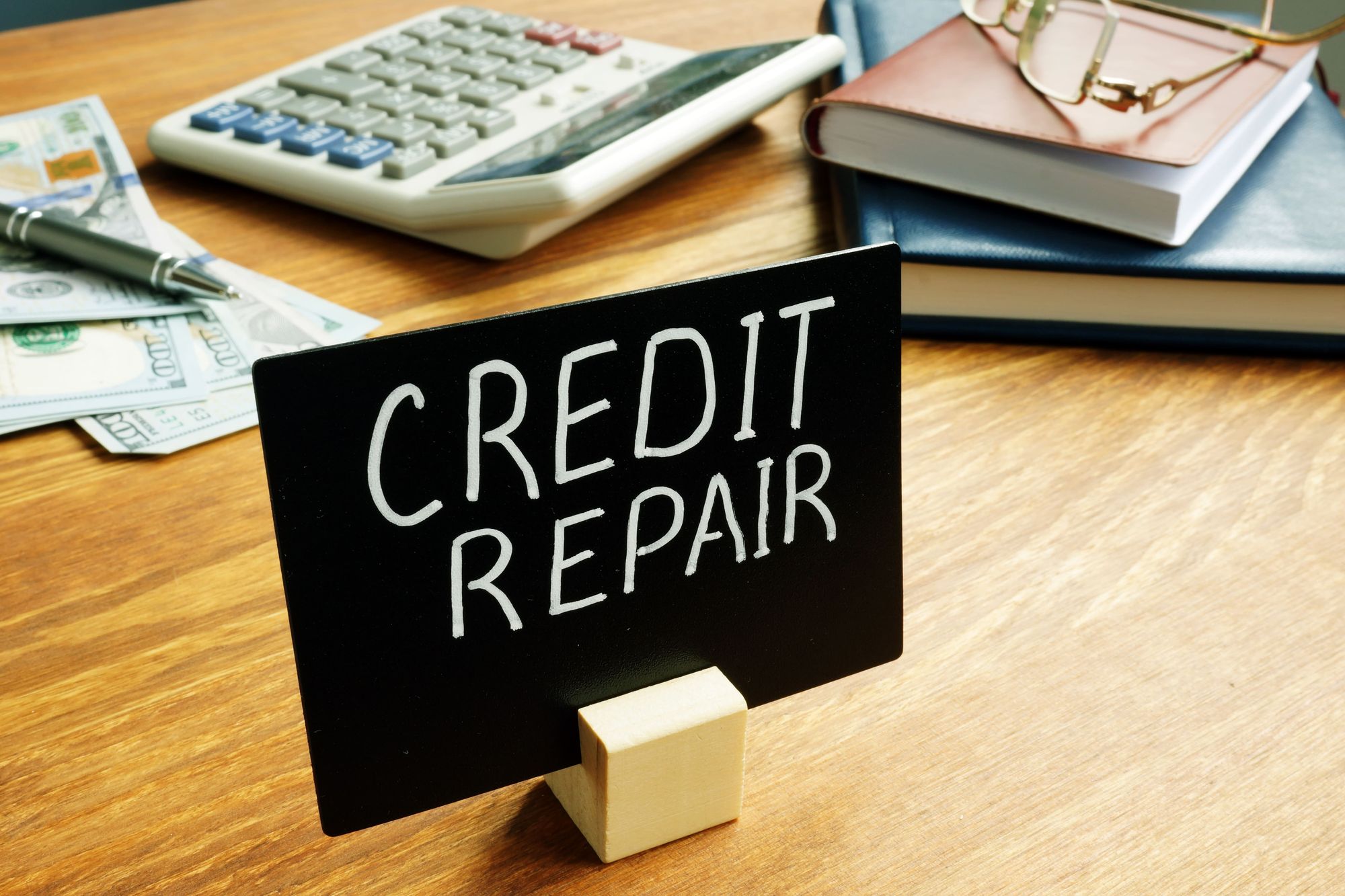Curious about your creditworthiness? Your CIBIL Score, a three-digit number, is the key. It's a reflection of your financial health and plays a pivotal role
In today's financial landscape, your credit score plays a crucial role in ensuring and maintaining your financial well-being. It affects your ability to secure loans, get approved for credit cards, and even influence the interest rates you will be required to pay if you avail yourself of loans. For those dealing with poor credit scores, the prospect of credit repair can be a ray of hope.
This article aims to demystify the concept of credit repair, explain how it works, shed light on the role of credit repair companies, and highlight the numerous benefits they offer.
What is Credit Repair?
Credit repair is the process of improving an individual's creditworthiness by addressing and resolving inaccuracies, errors, or negative (adverse) information on their credit reports. A higher credit score indicates a lower credit risk to lenders, making it easier for individuals to secure loans, obtain better interest rates, and access favourable financial opportunities.
📗 Related reading- How is Credit Score Calculated in India? Formula Decoded.
Importance of Credit Repair
Those seeking financial stability and security must understand the importance of credit repair. Credit repair assists individuals in rectifying the damage done to their credit profiles, often stemming from common credit issues like late payments, collections, and charge-offs. These issues can significantly hinder your ability to secure loans, credit cards, or favourable interest rates.
Credit repair assistance can help individuals learn how to repair their credit scores effectively and efficiently. It processes their creditworthiness and opens doors to various financial benefits. Repairing credit fast is essential, as it enables individuals to access more favourable financial opportunities sooner rather than later.
The benefits of credit repair extend beyond mere financial transactions. It empowers individuals to take control of their financial futures, make informed decisions, and work towards their long-term financial goals. Therefore, identifying the importance of credit repair and prioritising it is the first step towards achieving financial success.
How Does Credit Repair Work?
Credit repair involves a series of steps aimed at identifying and rectifying issues on your credit report. These steps are designed to help you dispute inaccuracies, remove negative entries, and ultimately boost your credit score. Here's a breakdown of how credit repair typically works
-
Obtain your credit reports: The first step in the credit repair process is to obtain copies of your credit reports from the three major credit bureaus: Equifax, Experian, and TransUnion. You are entitled to one free report from each bureau annually through AnnualCreditReport.com. Review these reports carefully to identify any inaccuracies or negative items.
-
Identify inaccuracies: Carefully examine your credit reports for any inaccuracies, including errors in personal information, accounts that don't belong to you, and incorrect account statuses. It is essential to clearly understand the factors affecting your credit negatively.
-
Dispute errors: If you spot inaccuracies, you can dispute them with the credit bureaus. You can file a dispute online, by mail, or by phone. The bureaus have 30 days to investigate your dispute and either correct the information or provide a valid reason for not doing so
-
Negotiate with creditors: In some cases, negative items may be accurate but negotiable. If you have legitimate delinquent accounts, you can contact your creditors to negotiate a payment plan or request a goodwill deletion once the debt is paid. These actions can help improve your credit report.
-
Establish positive credit history: Building or rebuilding your credit history is a critical part of credit repair. You can do this by responsibly managing your existing accounts, making on-time payments, and potentially opening new credit accounts if needed.
-
Maintain good credit habits: Credit repair is not a quick fix. It requires consistent effort to maintain good credit habits over time. Pay your bills on time, keep your credit card balances low, and avoid opening too many new credit accounts.
How Do Credit Repair Companies Work?
While you can engage in credit repair on your own, some individuals turn to credit repair companies for assistance. Credit repair companies are businesses that specialise in helping consumers improve their credit profiles. Here's how these companies typically work:
-
Initial consultation: When you hire a credit repair company, they will begin by reviewing your credit report and assessing your credit situation. This initial consultation allows them to identify inaccuracies, negative items, and areas that need improvement.
-
Dispute process: Credit repair companies will then initiate the dispute process on your behalf. They will prepare and send dispute letters to the credit bureaus and creditors, challenging inaccurate or questionable information. This process can be time-consuming, but credit repair companies are experienced in navigating the intricacies of credit reporting.
-
Monitoring progress: Credit repair companies will monitor the progress of your disputes and follow up with the credit bureaus and creditors as necessary. They will keep you updated on the status of your disputes and any improvements to your credit reports.
-
Education and guidance: Many credit repair companies offer educational resources and guidance to help you understand credit management. They may provide tips on improving your credit score and offer advice on responsible financial behaviour.
-
Legal expertise: Some credit repair companies employ legal experts who can leverage consumer protection laws like the Fair Credit Reporting Act (FCRA) to advocate for your rights as a consumer.
-
Fee structure: Credit repair companies typically charge fees for their services. These fees can vary widely, so it is essential to understand the cost structure before engaging in their services. Be cautious of companies that demand payment upfront; reputable companies often charge on a monthly basis or after they have delivered the promised results.
Benefits of Credit Repair
Engaging in credit repair, whether on your own or with the help of a credit repair company, can yield several significant benefits:
-
Improved Credit Score: The most obvious benefit of credit repair is the potential for an improved credit score. As inaccuracies and negative items are removed or resolved, your credit score is likely to rise, making it easier to qualify for loans and secure better interest rates.
-
Access to financial opportunities: A higher credit score opens doors to a wider range of financial opportunities. You are more likely to be approved for credit cards, mortgages, auto loans, and personal loans. Moreover, you will likely qualify for lower interest rates, which can save you a significant amount of money over time.
-
Enhanced financial freedom: Better credit means more financial freedom. You will have greater flexibility in your financial decisions and be better equipped to achieve your financial goals, such as buying a home, starting a business, or investing.
-
Lower borrowing costs: With an improved credit score, you will enjoy lower borrowing costs due to reduced interest rates. This means you will pay less in interest over the life of your loans, saving you money in the long run.
-
Improved quality of life: A good credit score can positively impact various aspects of your life, from your ability to rent an apartment to obtaining insurance at more favourable rates. It can reduce stress and provide peace of mind since you have the required financial stability.
Common Credit Issues
Common credit issues lead individuals to seek credit repair assistance. Late payments, collections, and charge-offs are prevalent problems that can significantly damage one's credit score. These issues result from financial missteps, such as missing due dates or failing to fulfil financial obligations.
Late payments can linger on credit reports for years, causing a drop in credit scores. Collections and charge-offs, where unpaid debts reach debt collectors, can impact your creditworthiness. Understanding how to repair a credit score entails addressing these issues.
By addressing these credit issues, individuals can not only repair their credit fast but also access the benefits of credit repair, including improved credit scores, increased access to financial opportunities, and better financial well-being. Repairing credit quickly is essential to expediting the process of regaining financial control and securing a brighter future.
Conclusion
Credit repair is a valuable tool for individuals looking to take control of their future financial stability and prosperity. Whether you choose to undertake credit repair on your own or enlist the help of a credit repair company, the potential benefits are significant.
By addressing inaccuracies, removing negative items, and practising responsible credit management, you can achieve a better credit score, and access a world of financial opportunities and improved quality of life. Remember that credit repair is a process that requires patience and consistent effort, but the rewards are well worth it in the end.
AUTHOR
KreditBee As a market leader in the Fintech industry, we strive to bring you the best information to help you manage finances better. These blogs aim to make complicated monetary matters a whole lot simpler.







